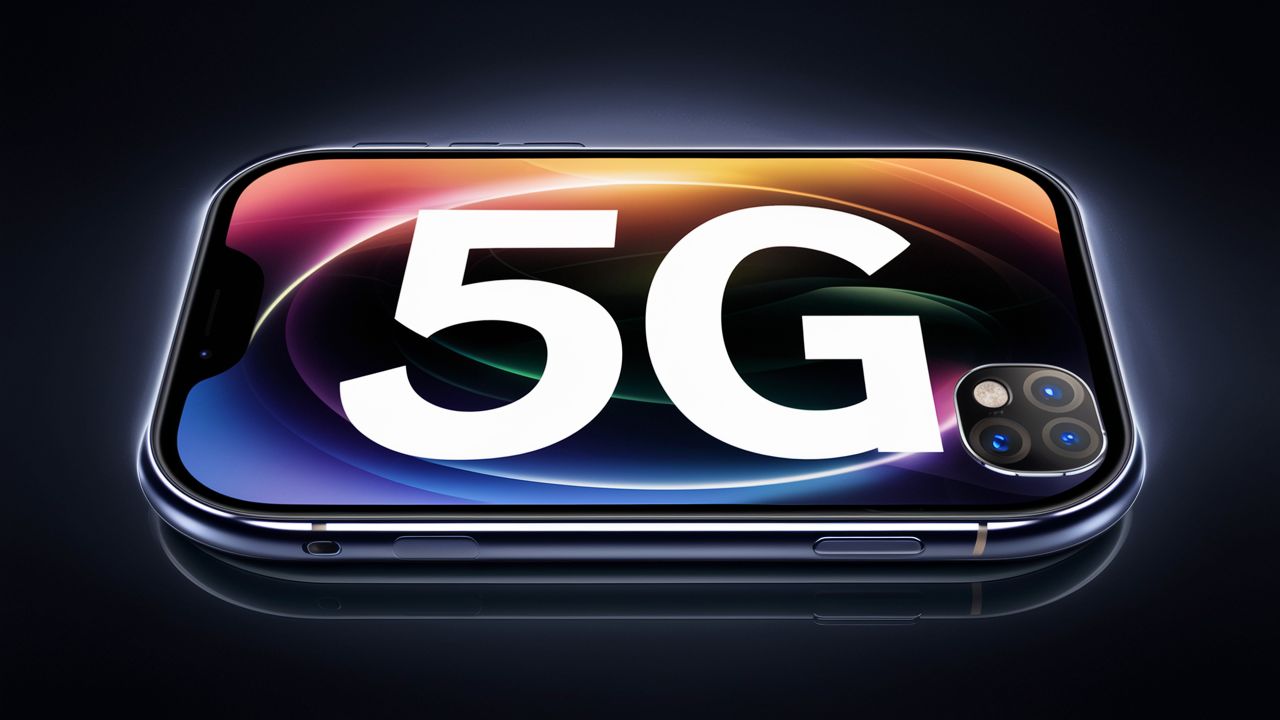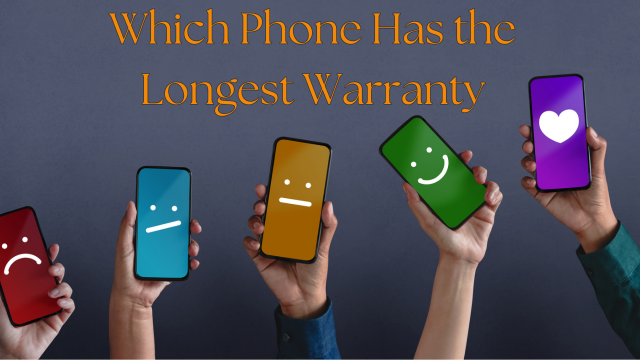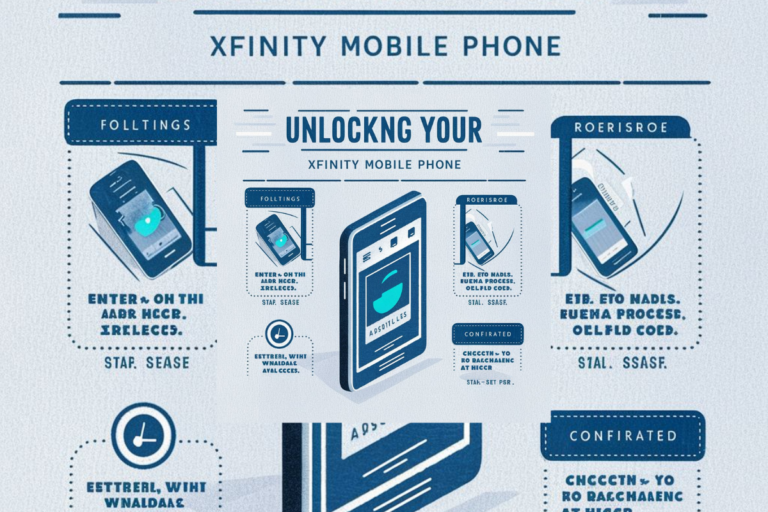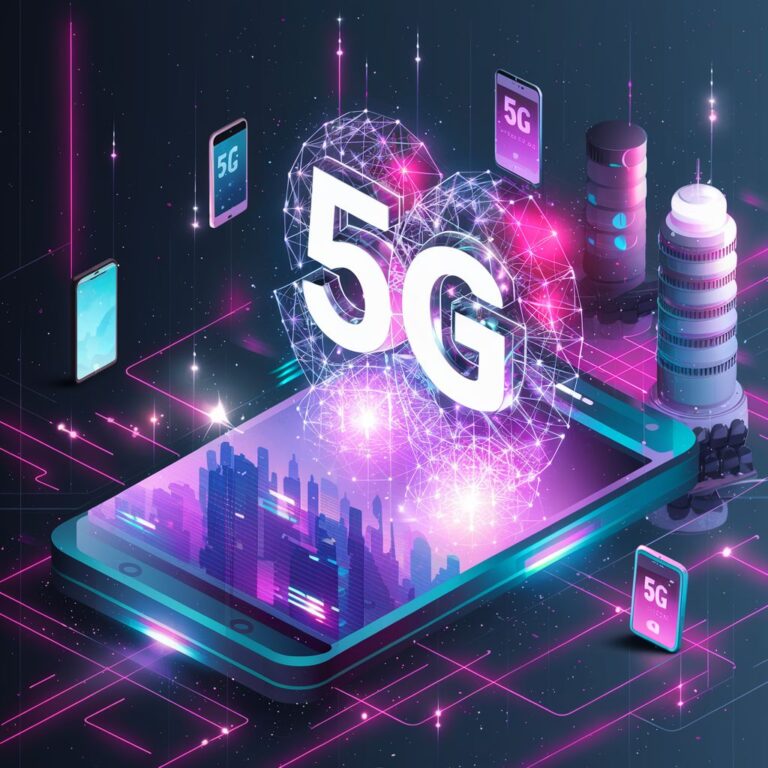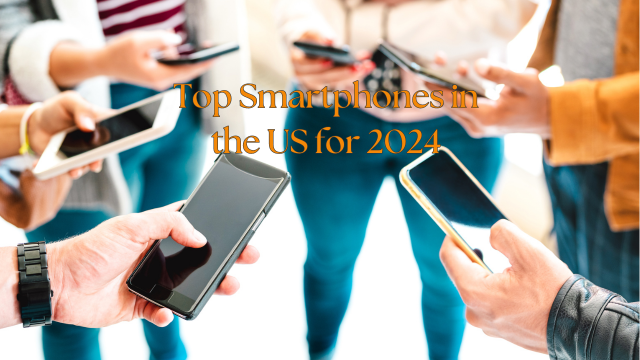The Future of Mobile: How 5G Phones are Changing the Game
The global transition to 5G technology is rapidly reshaping the mobile industry. As 5G networks become more widespread, consumers are increasingly gravitating toward 5G phones, eager to experience faster data speeds, reduced latency, and a wealth of new opportunities. However, despite the considerable hype surrounding these phones, there are also concerns and challenges that need to be addressed.
In this blog post, we will take a comprehensive look at the advantages and challenges of 5G phones, exploring how they differ from their 4G counterparts, their impact on various industries, and what consumers should expect in the coming years.
What Are 5G Phones?
5G phones are smartphones designed to operate on fifth-generation (5G) wireless networks. These networks offer several improvements over previous generations, particularly in terms of speed, latency, and network capacity. While 4G brought about innovations such as high-speed internet and HD video streaming, 5G represents the next step in mobile technology, offering unprecedented connectivity and the foundation for transformative technologies like the Internet of Things (IoT) and smart cities.
The Evolution from 4G to 5G
The transition from 4G to 5G isn’t just a minor upgrade. It’s a fundamental shift in how networks are built and managed. The 5G infrastructure is designed to handle massive amounts of data at significantly faster rates, enabling applications that were previously unimaginable. The jump in performance from 4G to 5G can be compared to moving from dial-up internet to fiber optics— the possibilities are revolutionary.
Advantages of 5G Phones
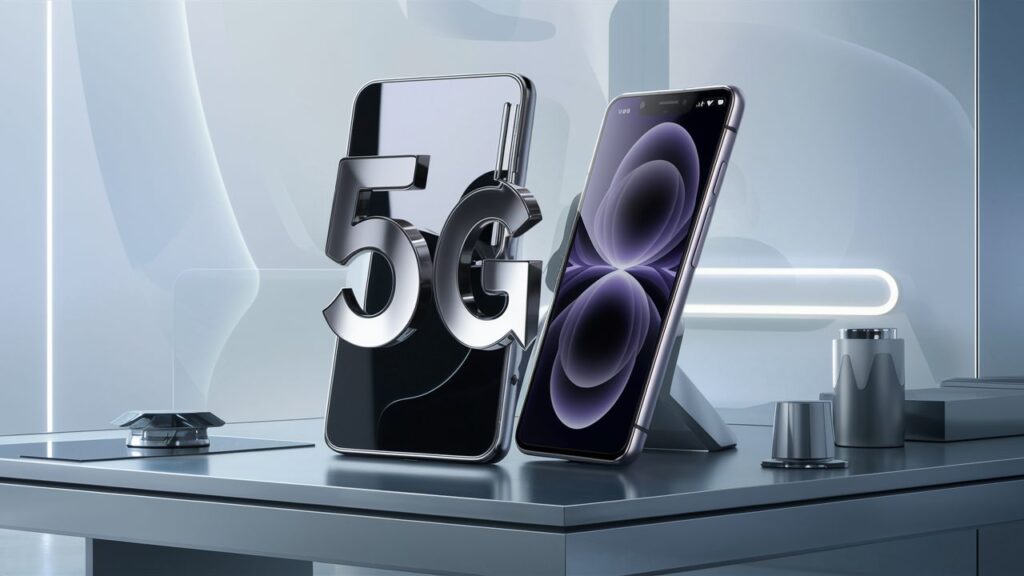
1. Unmatched Speed
One of the most significant benefits of 5G phones is their ability to connect to 5G networks, which provide much faster data speeds than 4G. While 4G can theoretically achieve download speeds of up to 100 Mbps, 5G can reach speeds as high as 10 Gbps under ideal conditions. This means that 5G phones allow users to download large files, stream ultra-high-definition (UHD) videos, and enjoy online gaming with minimal lag.
The increased speed also has implications for industries that rely on real-time data transmission, such as healthcare, autonomous vehicles, and cloud-based applications. In these sectors, the faster speeds provided by 5G phone can improve efficiency and innovation.
2. Lower Latency
Another significant advantage of 5G phones is the reduced latency. Latency refers to the time it takes for data to travel from one point to another. While 4G networks typically have a latency of around 50 milliseconds, 5G networks can reduce latency to as low as 1 millisecond.
This improvement is particularly important for applications where real-time communication is critical, such as virtual reality (VR), augmented reality (AR), and telemedicine. For example, a surgeon using a 5G-connected robotic system could perform a remote surgery with near-zero delays, improving patient outcomes and healthcare accessibility.
3. Enhanced Network Capacity
As more devices are connected to mobile networks, particularly IoT devices, the demand for network capacity is growing exponentially. 5G phones can connect to networks with significantly higher capacity, enabling more devices to operate simultaneously without causing congestion.
This is especially important in densely populated areas, such as cities, where 4G networks can become overcrowded during peak hours. With 5G, users can expect more consistent network performance, even in areas with high device density.
4. Powering the Internet of Things (IoT)
5G phones are set to play a crucial role in the expansion of the Internet of Things (IoT), a network of interconnected devices that communicate and share data in real-time. With their enhanced network capabilities, 5G phone can serve as hubs for IoT ecosystems, enabling users to control smart devices in their homes, monitor health data through wearable technology, and access real-time information from smart cities.
The low latency and high reliability of 5G networks make them ideal for supporting the vast amounts of data generated by IoT devices. As a result, 5G phones will become key tools for managing the increasingly interconnected world around us.
5. Future-Ready Technology
Investing in a 5G phone means future-proofing your device for the next generation of mobile technology. As 5G networks continue to expand and improve, 5G phones will remain compatible with the latest innovations and applications that rely on high-speed, low-latency connections. This ensures that users can continue to enjoy cutting-edge experiences, from cloud gaming to immersive virtual worlds, without needing to upgrade their devices frequently.
Challenges of 5G Phones
1. Limited Network Availability
Despite the excitement surrounding 5G phones, one of the primary challenges is the limited availability of 5G networks. While 5G coverage is steadily expanding, it is still primarily concentrated in urban areas, and rural regions often lack access to 5G infrastructure. This means that many consumers who purchase 5G phones may not be able to fully take advantage of 5G speeds and features, depending on their location.
In some countries, 5G network rollouts have been delayed due to regulatory hurdles, high infrastructure costs, and technical challenges. As a result, widespread 5G availability may still be several years away in certain regions.
2. Higher Costs
The technology that powers 5G phones is more advanced than that found in 4G devices, and this often translates into higher prices for consumers. 5G phone typically come with premium price tags, and the cost of accessing 5G networks may also be higher, as telecom operators invest heavily in upgrading their infrastructure.
For many consumers, the higher costs associated with these phones may be a deterrent, particularly if they do not live in areas with robust 5G coverage or if they do not require the enhanced capabilities that 5G offers.
3. Battery Drain
5G technology requires more power to operate than 4G, which can lead to faster battery drain on these phones. While manufacturers are working to improve battery efficiency, many early adopters of 5G phones have reported that their devices drain power more quickly when connected to 5G networks, compared to 4G.
This issue may be exacerbated by the increased demand for data-intensive applications, such as video streaming and online gaming, which can put additional strain on the battery. Users may need to charge their devices more frequently or invest in external battery packs to ensure uninterrupted usage.
4. Security Concerns
As with any new technology, 5G networks and devices have raised concerns about cybersecurity. The sheer number of connected devices and the increased complexity of 5G networks present new challenges for securing data and protecting against cyberattacks.
5G phones, which rely on cloud-based applications and IoT devices, are particularly vulnerable to cyber threats, as malicious actors could exploit network weaknesses to gain access to sensitive information. While security protocols are being developed to address these issues, consumers should be aware of the potential risks and take steps to safeguard their data.
5. Compatibility Issues
While 5G phones are designed to work seamlessly on 5G networks, they may not be fully compatible with older 4G or 3G networks. This can create issues for users who frequently travel to areas without 5G coverage, as their phones may experience slower speeds or connectivity problems on legacy networks.
In some cases, consumers may need to manually switch their phones between 5G and 4G modes to maintain optimal performance, which can be inconvenient. Additionally, 5G phone that are designed for specific regions or carriers may not be compatible with 5G networks in other countries, limiting their functionality for international travelers.
The Impact of 5G Phones on Various Industries
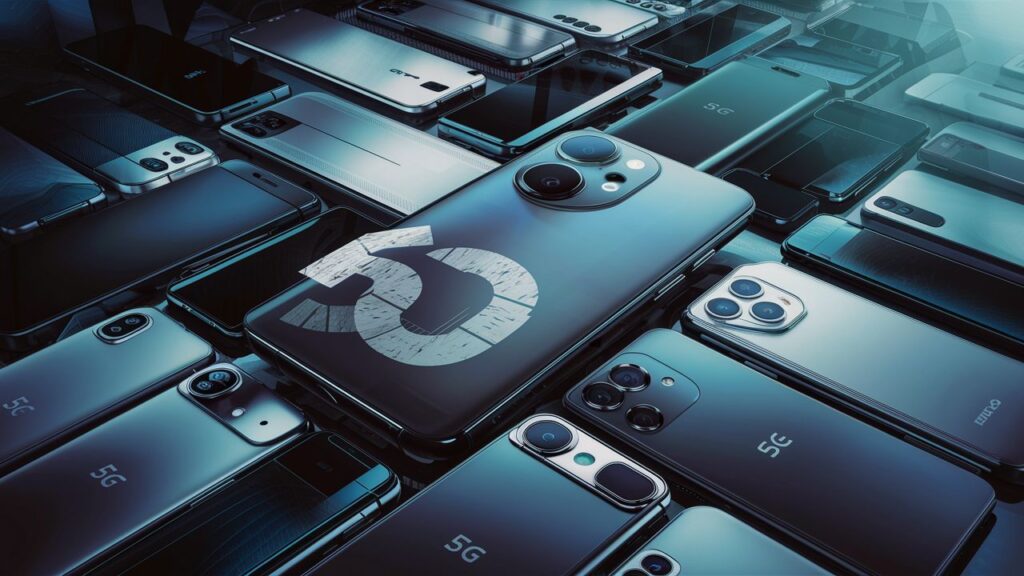
1. Healthcare
The healthcare industry is poised to benefit significantly from the widespread adoption of 5G phones. With their ability to transmit large amounts of data quickly and reliably, 5G phone can support telemedicine applications, enabling doctors to remotely monitor patients, conduct virtual consultations, and even perform surgeries using robotic systems.
In addition, 5G phones can facilitate the use of wearable health devices, which collect real-time data on a patient’s vital signs and transmit it to healthcare providers for analysis. This can lead to more proactive and personalized care, improving patient outcomes and reducing the need for in-person visits.
2. Entertainment and Gaming
5G phones are set to revolutionize the entertainment and gaming industries by providing faster download speeds, lower latency, and enhanced streaming capabilities. With these phones, users can enjoy ultra-high-definition video streaming, immersive augmented reality experiences, and cloud-based gaming with minimal lag.
The increased bandwidth of 5G networks also allows for the delivery of more sophisticated gaming experiences, such as multiplayer online games that require real-time interaction between players. As a result, 5G phones are likely to become the go-to devices for gamers and entertainment enthusiasts who demand the best performance.
3. Automotive Industry
The automotive industry is another sector that stands to benefit from the deployment of 5G phones. With the rise of connected vehicles and autonomous driving technologies, these phones can provide the fast, reliable connections needed to support real-time data exchange between cars and infrastructure.
For example, 5G phones can enable drivers to receive up-to-date traffic information, weather alerts, and navigation assistance, improving road safety and reducing travel times. In the future, these phones may also play a role in enabling vehicle-to-vehicle communication, allowing autonomous cars to
“talk” to each other and avoid collisions.
4. Smart Cities
The concept of smart cities, where urban infrastructure is interconnected through sensors and devices, relies heavily on 5G technology. 5G phones can serve as personal hubs for interacting with smart city services, such as public transportation, energy management, and waste collection.
In smart cities, residents with 5G phones will be able to access real-time information about traffic congestion, public transit schedules, and emergency services. This increased connectivity will lead to more efficient resource management and improved quality of life for city dwellers.
5. Education
Education is another field where 5G phones could have a transformative impact. The low latency and high bandwidth offered by 5G networks can support the delivery of virtual classrooms, online learning, and immersive educational experiences through augmented and virtual reality.
With these phones, students and educators can participate in real-time video conferences, collaborate on projects remotely, and access vast libraries of multimedia content with ease. This will enhance the accessibility and flexibility of education, particularly for students in remote or underserved areas.
The Future of 5G Phones
The future of 5G phones is bright, with continued advancements in technology and expanding network coverage set to unlock new possibilities. As industries adapt to 5G, we can expect to see innovations that go beyond faster internet speeds, transforming sectors like healthcare, transportation, and entertainment.
In the coming years, 5G phones may become even more integrated with everyday life, from powering smart homes and cities to enabling autonomous vehicles and advanced medical treatments. As 5G technology continues to evolve, it will likely play a central role in shaping the future of communication, connectivity, and technology.
FAQs about 5G phones
1. What are the main benefits of 5G phones?
5G phones offer faster data speeds, lower latency, enhanced network capacity, and the ability to connect to IoT devices, making them future-ready for new innovations.
2. Are 5G phones more expensive than 4G phones?
Yes, 5G phones tend to be more expensive due to the advanced technology they use, and the costs associated with accessing 5G networks may also be higher.
3. How does 5G improve battery life?
Currently, 5G technology tends to drain batteries faster than 4G, but manufacturers are working on improving battery efficiency in 5G phones.
4. Is 5G available everywhere?
No, 5G networks are still being rolled out and are primarily available in urban areas. Rural regions may not yet have access to 5G.
5. Can I use a 5G phone on a 4G network?
Yes, 5G phones are compatible with 4G networks, but you won’t experience the benefits of 5G speeds and features on a 4G network.

